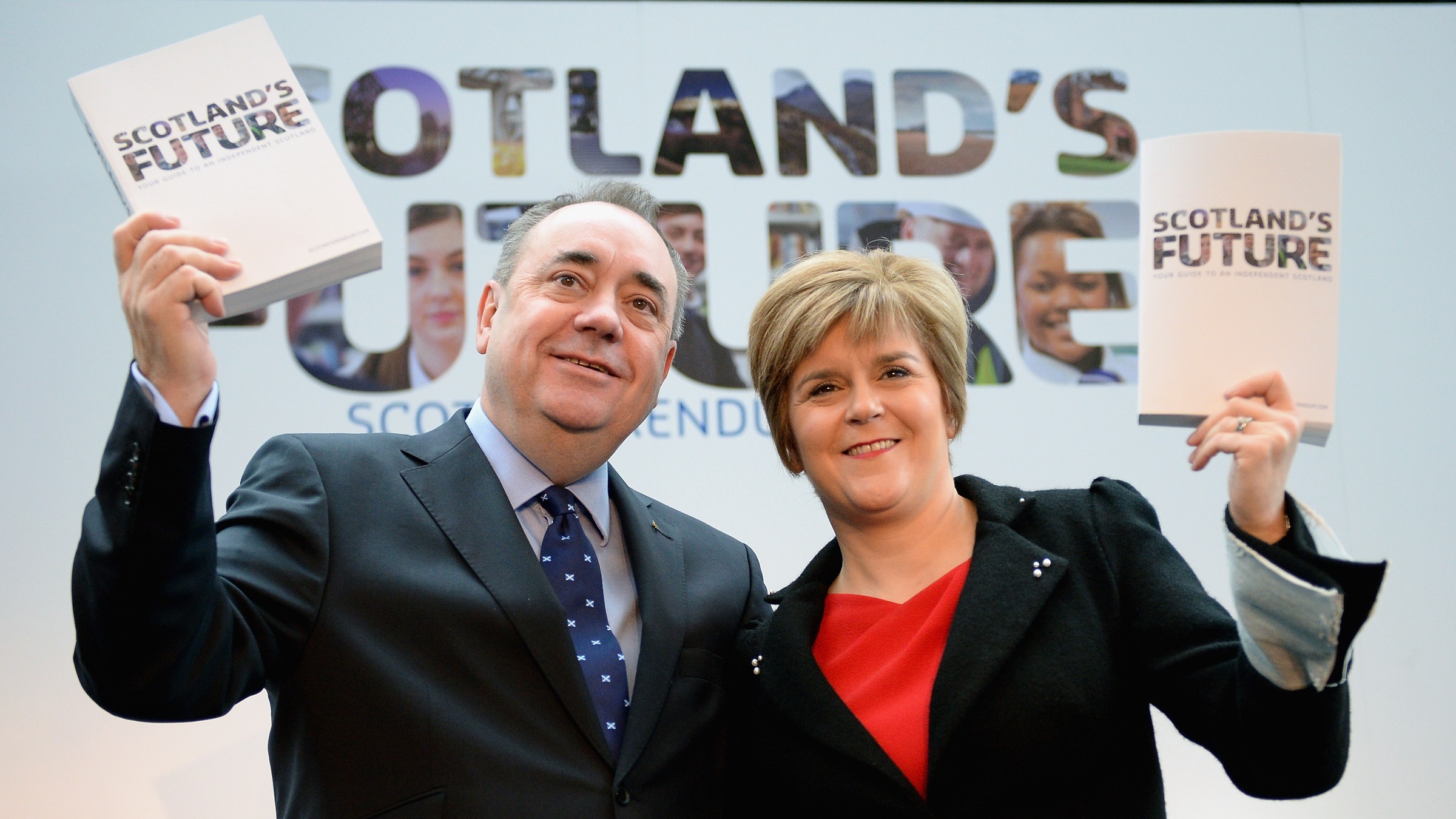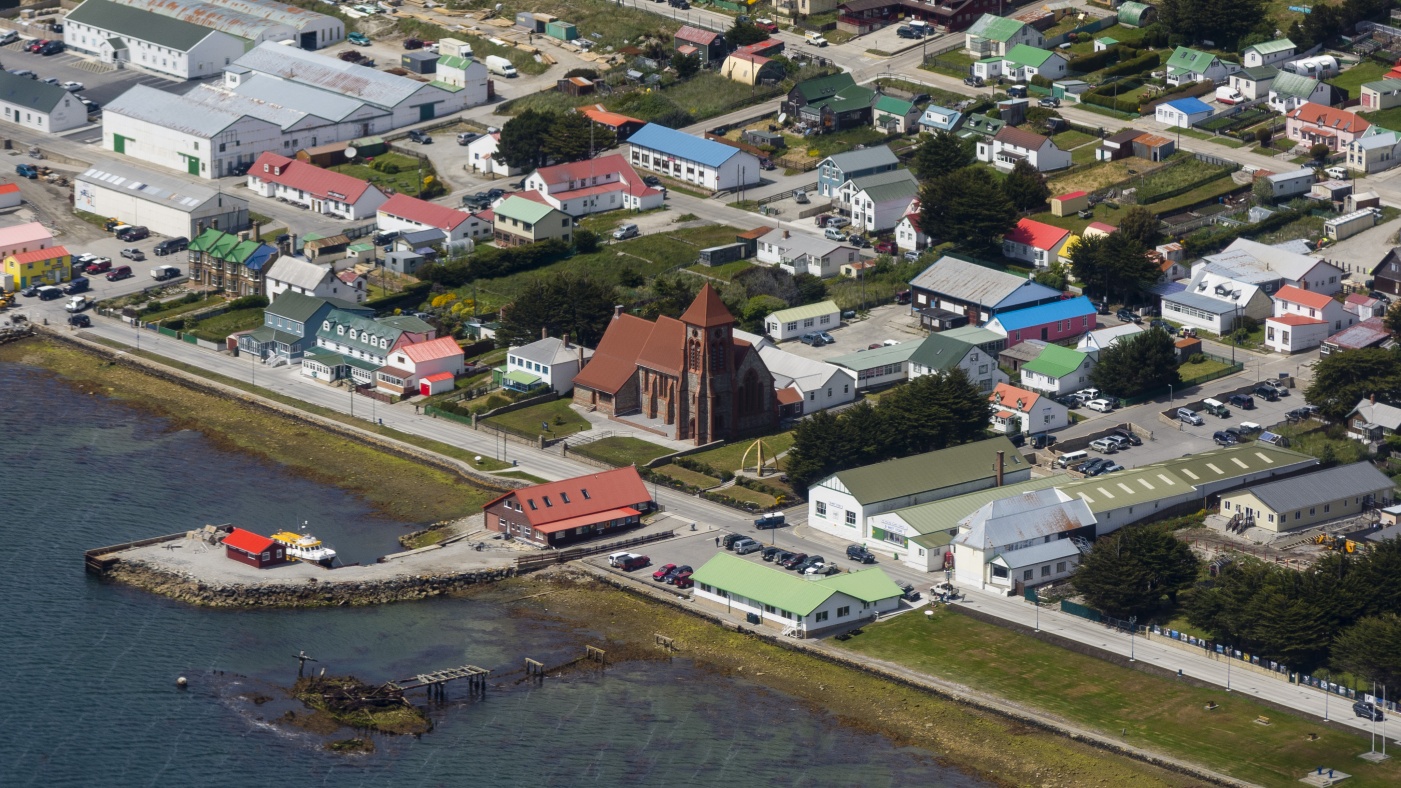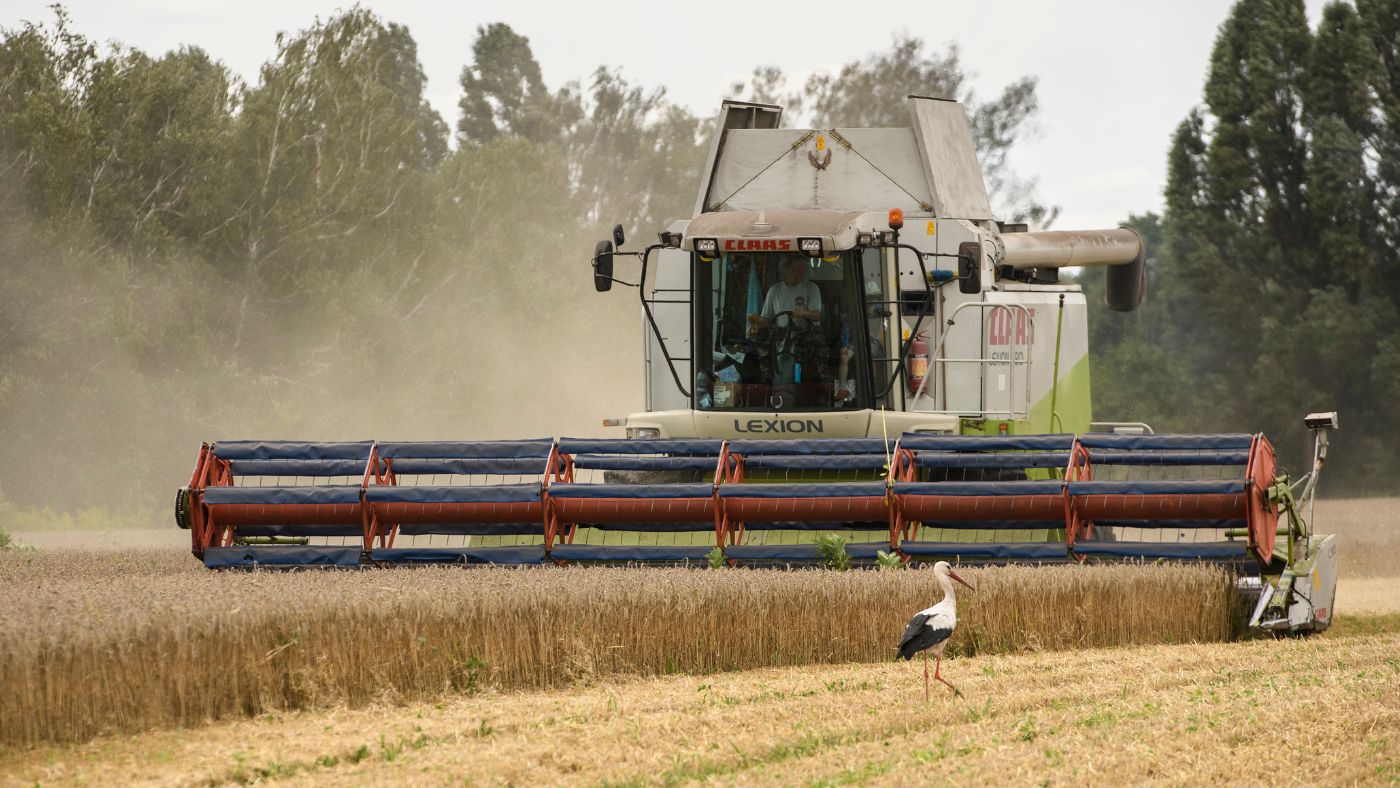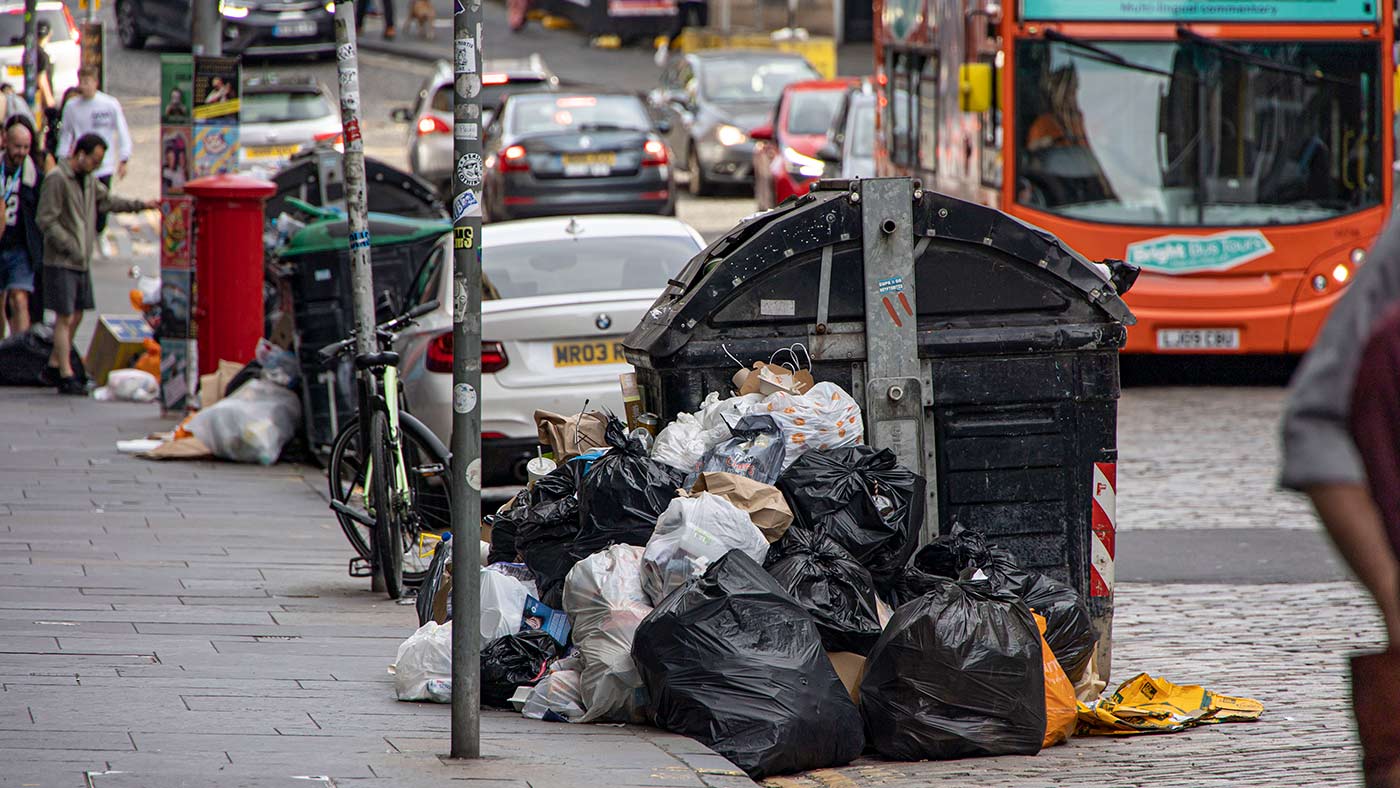‘The SNP’s plans promise speculative benefits while ignoring real trade-offs’
Your digest of analysis and commentary from the British and international press

- 1. The SNP’s plans for rejoining the EU don’t add up
- 2. The landmark report on racism should clear the way for a realistic debate on inequality in Britain
- 3. It’s right to get rid of ‘Bame’ – but this report minimises racism in the process
- 4. If the Queen has nothing to hide, she should tell us what artefacts she owns
- 5. Your Tinder match will soon be able to run a background check on you
A free daily email with the biggest news stories of the day – and the best features from TheWeek.com
You are now subscribed
Your newsletter sign-up was successful
1. The SNP’s plans for rejoining the EU don’t add up
Oliver Kamm in The Times
on Scottish rejoiners
“The Scottish National Party is a latecomer to the pro-European cause,” writes Oliver Kamm in The Times, having “recommended leaving the Community in the 1975 referendum now it has the zeal of a convert”. However, “the SNP’s plans, like the Brexit campaign itself, promise speculative benefits while ignoring real trade-offs”. Were Scotland to rejoin, “it would enjoy some gains from being part of its internal market but at the price of erecting trade barriers to the rest of the UK”, Kamm says, while “the concessions previously enjoyed by the UK within the EU, such as the budget rebate and opting out of the euro, would probably not be on offer.” If Scotland plans to pursue a strategy of getting their feet back under the table in Brussels, they will have to recognise that “EU governments want Britain back but not at any price”.
The Week
Escape your echo chamber. Get the facts behind the news, plus analysis from multiple perspectives.

Sign up for The Week's Free Newsletters
From our morning news briefing to a weekly Good News Newsletter, get the best of The Week delivered directly to your inbox.
From our morning news briefing to a weekly Good News Newsletter, get the best of The Week delivered directly to your inbox.
2. The landmark report on racism should clear the way for a realistic debate on inequality in Britain
Fraser Myers in The Telegraph
on modern Britain
“Since the Black Lives Matter protests last year, an unflattering picture of Britain has been painted”, writes Fraser Myers in The Telegraph. “Britain, we are told, is institutionally, systemically and irredeemably racist”, with discrimination running rife in “our education system, in our workplaces, in our culture and even in our unconscious thoughts”. So will the Commission on Race and Ethnic Disparities report, released today, “challenge this doom-laden view”? It does not paint the UK as an “apocalyptic wasteland of racism”, instead suggesting that it is a “beacon” and a “model” for “other white-majority countries”. “The saturation of the ‘Britain is racist’ message has consequences, including for ethnic-minority Brits”, Myers adds. “Let’s hope this report opens up a more balanced – and realistic – debate about inequality in Britain.”
A free daily email with the biggest news stories of the day – and the best features from TheWeek.com
3. It’s right to get rid of ‘Bame’ – but this report minimises racism in the process
Amanda Parker in The Independent
on absolving complicity
“Along with others who’ve been lobbying for change, I’m definitely raising a glass in celebration of the decision to stop using” the term BAME, writes Amanda Parker in The Independent. But “my joy falls flat with the rest of the race disparities unit’s conclusions”. The report “concludes that because students of African and Indian heritage have higher than average education outcomes at GCSE level, this is proof that we’re no longer a racist society”. But what it fails to account for is that “despite performing least well in education”, white Britons “outperform their ethnically diverse peers in employment and social mobility”. The unit “overlooks what’s happening in GP surgeries and hospitals”, while ignoring “data on redundancies during the pandemic”, she adds. Despite the unit’s findings, racism in Britain remains “nuanced and complex”.
4. If the Queen has nothing to hide, she should tell us what artefacts she owns
Dan Hicks in The Guardian
on looted heirlooms
“As with ethical consumption in fashion retail, today people want to know where the culture they consume comes from – how it got here, and whether anybody is asking for it back”, says Dan Hicks in The Guardian. “This question of transparency comes into focus” after it was revealed that “Her Majesty’s private estates were exempted from the 2017 Cultural Property (Armed Conflicts) Act”. “In the colonial era, British royal power commemorated dispossession as a source of its legitimacy”, Hicks says. But “in today’s very different world cultural legitimacy requires that stealing is neither triumphantly displayed nor hidden away or covered up”. From “our nation’s museums to whatever it is that hangs from the picture-hooks of Sandringham House, the British public and the world deserve openness when it comes to questions of theft”.
5. Your Tinder match will soon be able to run a background check on you
Dr Karen Levy in The New York Times
on dating data
“There’s something to be said for the idea that intimacy is based on having discretion to share information with others”, writes Karen Levy in The New York Times. But Match Group – which owns Tinder, OKCupid and Match.com – is taking steps to make getting to know your partner easier by helping “run background checks on potential dates”. “It’s easy to understand why Match Group is making this move”, she says, as “potential partners sometimes deceive each other”, while “gender-based violence is a serious and prevalent problem”. But “it’s not hard to imagine how background checks might open the door to other kinds of data”. “Should I know whether someone has filed for bankruptcy or been married before or owns property? Should I be able to sort partners by their credit score?”, she asks. Introducing this level of checking “seems at odds with how we typically learn about one another – gradually, and with the benefit of context”.
-
 Why is the Trump administration talking about ‘Western civilization’?
Why is the Trump administration talking about ‘Western civilization’?Talking Points Rubio says Europe, US bonded by religion and ancestry
-
 Quentin Deranque: a student’s death energizes the French far right
Quentin Deranque: a student’s death energizes the French far rightIN THE SPOTLIGHT Reactions to the violent killing of an ultraconservative activist offer a glimpse at the culture wars roiling France ahead of next year’s elections
-
 Secured vs. unsecured loans: how do they differ and which is better?
Secured vs. unsecured loans: how do they differ and which is better?the explainer They are distinguished by the level of risk and the inclusion of collateral
-
 ‘Islas Malvinas’ and the new battle over the Falklands
‘Islas Malvinas’ and the new battle over the FalklandsTalking Point Argentina scores ‘major diplomatic win’ as EU refers to British territory by its disputed name
-
 Dutch king apologizes for country's role in slave trade
Dutch king apologizes for country's role in slave tradeSpeed Read
-
 Ukrainian grain: rousing the fury of east Europe’s farmers
Ukrainian grain: rousing the fury of east Europe’s farmersfeature Three Eastern European countries have banned grain imports from the war-torn country
-
 Swedish mining company discovers Europe's largest rare earth element deposit
Swedish mining company discovers Europe's largest rare earth element depositSpeed Read
-
 10 things you need to know today: December 18, 2022
10 things you need to know today: December 18, 2022Daily Briefing North Korea fires pair of ballistic missiles that could potentially reach Japan, EU reaches deal on key climate change agenda, and more
-
 10 things you need to know today: December 3, 2022
10 things you need to know today: December 3, 2022Daily Briefing Protests in China continue as Beijing and Shenzhen loosen more COVID restrictions, Biden says there are currently no plans to talk to Putin in regard to ending war, and more
-
 Setback for Sturgeon as rubbish piles up in Edinburgh
Setback for Sturgeon as rubbish piles up in EdinburghTalking Point Mounds of litter have taken over city streets due to strike by refuse workers
-
 ‘The UK’s malaise will not end with the Prime Minister’s exit’
‘The UK’s malaise will not end with the Prime Minister’s exit’Instant Opinion Your digest of analysis from the British and international press